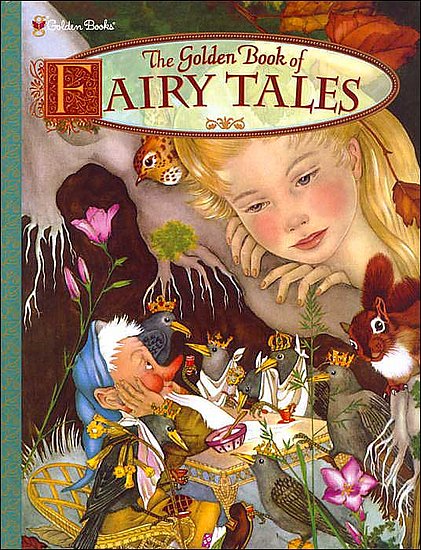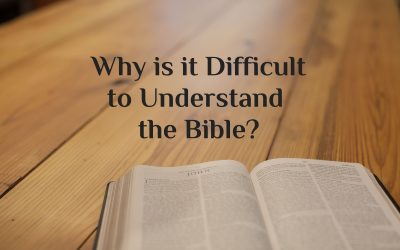One of my favorite memories is that of my mother reading to me from a book of fairy tales. Cinderella, Ali Baba,  Sleeping Beauty, and other characters came to life through the sound of her voice. As I listened to their adventures, each character seemed as real as any person I’d met.
Sleeping Beauty, and other characters came to life through the sound of her voice. As I listened to their adventures, each character seemed as real as any person I’d met.
I soon graduated to reading those tales, and others, myself. Then I moved on to more stories. Grand tales of love and adventure, of courage and sacrifice. Stories set in exotic locales with characters much more interesting than the people I talked to each day.
Trouble is, that’s how some people view all or part of the Bible: interesting stories set in exotic times and places. Stories that have a moral, but aren’t really true.
Even in some Christian circles today, it’s popular to teach that the Bible is true when it speaks of Jesus as our Savior, but that other passages such as the book of Genesis are merely grand stories meant to teach a lesson. For example, the creation account in Genesis couldn’t be true since “everyone” knows that the universe could not have been created in six days, Noah could never have fit all the animals on the ark, and Jonah could not have been swallowed by a big fish.
Why not? As Ken Ham of Answers in Genesis is fond of saying, “Were you there?”
While science has proposed a variety of theories to disprove Biblical accounts, including creation, there has not yet been one scientific law that proves the Bible wrong. Not one. So why are many Christians reluctant to take a stand for the validity of the entire Biblical record, from Genesis 1 through Revelation 22?
Some people seem to think we simply need to teach others about Jesus Christ—that discussions about creation are unimportant. After all, whether it took six days or six million years, we’re here, aren’t we?
But it is important. If we can’t trust the literal Biblical account of creation, how can we trust the Biblical accounts of anything else? If we teach others to choose the passages they want to believe in the Bible, how is this different from belief systems that combine bits and pieces of various religions to create something they are comfortable with?
The book of Genesis is as important as the gospel accounts in the Bible because it is foundational to everything else the Bible mentions. It provides detailed explanations for the basis for marriage and for the development of different people groups and cultures. It even provides a scientific explanation for the fossil record discovered by archeologists in recent years.
Most of all, Genesis explains the reason we need a Savior. If the account of Adam and Eve in the Garden of Eden is not true, then why should we believe the rest of the Bible is true? As Mr. Ham puts it, “We’re not trying to get people to believe in creation, but to point them to their Creator.”
As teachers, writers, parents, and anyone else who would speak of our Christian faith, if we are ashamed of the Biblical account—the whole Biblical account—then we are not correctly handling “the word of truth” (II Timothy 2:15).
I love reading fairy tales and I love reading the Bible…but they are not the same.
What do you believe?





The more I read the Bible the more I can here God speaking the truth to me, about how much He Loves me and what He created me for. The more confident I am in sharing his inspiring words with others as so many people, He surrounded me with, have done for me. It has changed my life. I Thank Him daily. God Is So Good!
I just chatted with my 9-year-old about this, Ava. I love to read stories to her–and I love for her to know the truth of Scripture.
Love the allegory you saw in Pat’s “The.kitten.I’m.not.keeping” post.
:O)
Thanks, Beth. I couldn’t resist! 😉
You state here that there’s not one scientific fact that disproves scripture, why? It’s either wilful ignorance or a poorly educated and delusional mindset that could come to your conclusions.
If you don’t understand science, go and learn the facts for yourself instead of trying to comment on topics you can’t understand. A creationist/literalist interpretation of scripture has been destroyed by the observed facts, not by opinion. Are you so conditioned you actually believe there is a global conspiracy just to debunk your doctrine? Even the majority of Christian denominations call the Bible allegorical fiction, and evolution theory foundational truth at the heart of humanity. Creationism is pseudo-Christianity and literalists are simply echoes of ignorance from a bygone era. Wake up and smell the coffee.
I’m sorry my faith ignites your anger. Surely I’m entitled to my beliefs even as you have yours. I did notice your vehement protests against the veracity of the Bible neglect several reasonable considerations:
1. The Bible has survived the attacks of its detractors for several thousand years without ever being proven wrong. In fact, the Bible even described jetstreams before the scientific community knew what they were (Ecclesiastes 1:6)!
2. Many scientific intellectual powerhouses stand by the contents of the Bible – all of its content. A list of just under 200 names can be found at: http://creation.com/creation-scientists#presentsci
3. In the entirety of your comment, you failed to provide even one specific verified fact (not theory) as an example of the Bible’s failure to uphold truth.
My heart aches for you. If I am wrong, I have lost nothing and gained everything.
If you are wrong, you have lost everything.
I pray you will someday come to know, first-hand, the love of Jesus Christ – the One who both created the world you know and died to save you from the sin that keeps you separated from that love.
So well said! I wish I knew a way to wake people up to the real facts instead of the assumptions the pseudo-scientists throw out as facts.